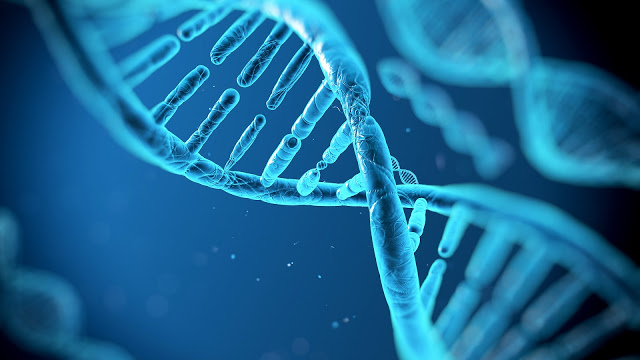Green Energy

From the Independent:
- Earth Is An Oil-producing Machine — We're Not Running Out
From Investors: Ever since M. King Hubbert in the 1950s convinced a lot of people with his "peak oil" theory that production would collapse and we'd eventually exhaust our crude supplies, the clock has been running. And running. And it will continue...
- Jihad Packets
From Tammy Swofford at the Daily Times: The intelligence sector remains hard at work. Jihadi sites are scrubbed, some sites monitored and others are acquired, and used as honey pots. But with the advent of Twitter, infection is spiking November of 2008:...
- "you Have No Reasonable Expectation Of Privacy Regarding Any Communication Or Data Transiting Or Stored On This Information System.”
Source code, not visible on the Obamacare website, but that’s not all.You have no reasonable expectation of privacy regarding any communication or data transiting or stored on this information system. At any time, and for any lawful Government...
- Gross: U.s. Taxpayers Shelled Out $634,320,919 To Build Obamacare Website
From Digital Journal: It’s been one full week since the flagship technology portion of the Affordable Care Act (Obamacare) went live. And since that time, the befuddled beast that is Healthcare.gov has shutdown, crapped out, stalled, and mis-loaded...
-
Sarin gas seized in Turkey From Will at THE OTHER NEWS: Sarin gas seized in Turkey. Cumhuriyet (GoogleTranslate). Prime Minister Erdogan, U.S. President Obama tried to persuade the Syrian army uses chemical weapons. Assad has used chemical...
Green Energy
Scientists Find Way To Store Vast Quantities of Information In Single DNA Molecule For Millions of Years

From the Independent:
Scientists have developed a way of storing vast quantities of information for up to a million years in a single molecule of DNA.
The breakthrough could lead to digital archives of everything from ancient texts to Wikipedia changes being stored in the form of DNA that could in theory survive for hundreds of thousands of years without any loss of data.
Robert Grass and colleagues of the Swiss Federal Institute of Technology (ETH) in Zurich said they have pioneered a process of encapsulated DNA in glass that is equivalent to creating a fossilised form of data storage.
They have also developed a mathematical algorithm normally used in long-distance radio transmissions to eliminate any errors when deciphering the data written in the digital genetic code of DNA.
“We will show how we can use modern chemical and information engineering tools for the safeguarding of actual digital information in the form of DNA,” the researchers told the American Chemical Society meeting in Boston.
Dr Grass said that his team has converted 83 kilobytes of text from the medieval Swiss Federal Charter of 1291 and the Methods of Archimedes from the 10th Century into the digital code of DNA based on sequences of four chemical building blocks, the nucleotides A, C, T and G.
“A little after the discovery of the double helix architecture of DNA, people figured out that the coding language of nature is very similar to the binary language we use in computers,” Dr Grass said.
“On a hard drive, we use zeros and ones to represent data, and in DNA we have four nucleotides, A, C, T and G,” he said.
The DNA molecules were synthesised by machine and heated to 71C for a week, which is equivalent to being stored at 50C for 2,000 years, after which it was decoded back into the original text without any errors, Dr Grass told the meeting.GO READ THE WHOLE THING.
- Earth Is An Oil-producing Machine — We're Not Running Out
From Investors: Ever since M. King Hubbert in the 1950s convinced a lot of people with his "peak oil" theory that production would collapse and we'd eventually exhaust our crude supplies, the clock has been running. And running. And it will continue...
- Jihad Packets
From Tammy Swofford at the Daily Times: The intelligence sector remains hard at work. Jihadi sites are scrubbed, some sites monitored and others are acquired, and used as honey pots. But with the advent of Twitter, infection is spiking November of 2008:...
- "you Have No Reasonable Expectation Of Privacy Regarding Any Communication Or Data Transiting Or Stored On This Information System.”
Source code, not visible on the Obamacare website, but that’s not all.You have no reasonable expectation of privacy regarding any communication or data transiting or stored on this information system. At any time, and for any lawful Government...
- Gross: U.s. Taxpayers Shelled Out $634,320,919 To Build Obamacare Website
From Digital Journal: It’s been one full week since the flagship technology portion of the Affordable Care Act (Obamacare) went live. And since that time, the befuddled beast that is Healthcare.gov has shutdown, crapped out, stalled, and mis-loaded...
-
Sarin gas seized in Turkey From Will at THE OTHER NEWS: Sarin gas seized in Turkey. Cumhuriyet (GoogleTranslate). Prime Minister Erdogan, U.S. President Obama tried to persuade the Syrian army uses chemical weapons. Assad has used chemical...
